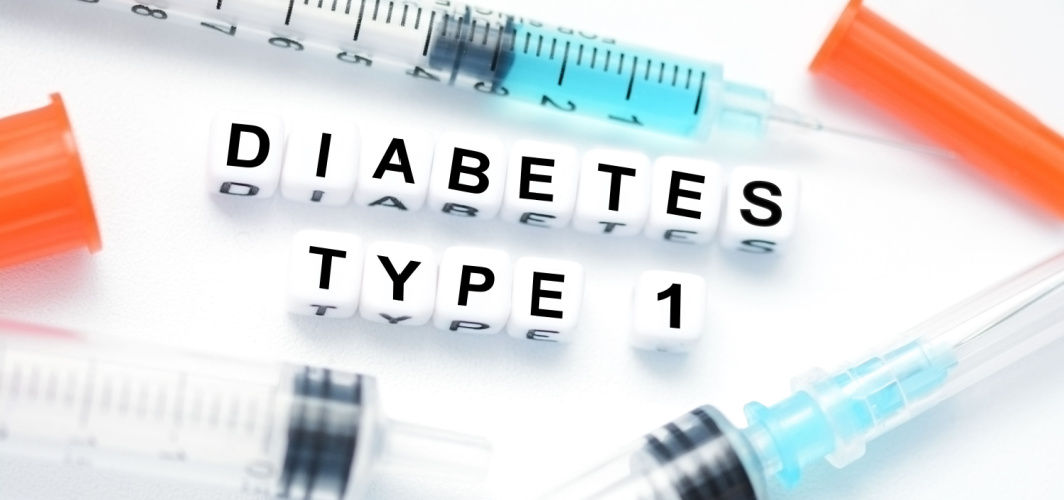Diabetes Management
Diabetes & Thyroid: The Endocrine Connection
5 min read
By Apollo 24/7, Published on - 22 December 2020, Updated on - 27 August 2023
Share this article
1
4 likes

Is there a connection between diabetes and thyroid disease?
To know the levels of your thyroid hormone Book Thyroid Profile Test
How does thyroid hormone affect glucose levels in the body?
- Research shows that thyroid hormones oppose the action of insulin in the body and promotes glycogenolysis and hepatic gluconeogenesis (the formation of glucose in the liver).
- Studies have concluded that hyperthyroidism can result in increased blood sugar levels in the body as it reduces the half-life of insulin (the point where only half of the actual insulin stays in the blood) and promotes the release of inactive precursors of insulin.
- It was further found that untreated Graves' disease (a form of hyperthyroidism) results in the increase of proinsulin, which indicates the state of hypoglycemia (low blood sugar levels).
- It has been reported that undiagnosed hyperthyroidism can result in a low C-peptide to proinsulin ratio, which suggests a defect in the production of insulin in the body.
- Hypothyroidism increases insulin resistance in the body, thus increasing the risk of diabetes.
What are the signs of thyroid disease?
- Weight loss despite having a normal appetite
- Increased body metabolism
- Heat intolerance
- Increased heart and pulse rate
- Increased sweating
- Weakness in the muscles
- Shortness of breath while doing any strenuous work
- Disturbed menstrual cycle
- Diarrhoea
- Inability to concentrate
- Sudden weight gain
- Reduced body metabolism
- Cold intolerance
- Slow pulse rate
- Low blood pressure
- Fatigue
- Constipation
How can a person with diabetes deal with thyroid disease?
- The blood sugar levels must be under control. They must be checked every day using a glucometer at home.
- Thyroid medications must be consumed as directed by the doctor, as missing doses or taking the medication at different times would prevent it from working.
- Thyroid medications must be taken on an empty stomach as consumption of food along with the medicine can reduce its absorption in the body. Fibrous foods such as bran cereals, whole grains, fruits and beans must be consumed hours after consuming the thyroid medication.
- Consumption of calcium, iron or iodine supplements along with thyroid medication should only be done after consulting a doctor as it can reduce or block the absorption of thyroid medicine.
- Moderate forms of exercise such as jogging, swimming or riding a bicycle must be practices, as it would help in utilising the sugar in the blood and would also help in shedding the extra weight gained due to thyroid disease.
To know the functioning of the heart, Book Apollo's Heart Check Test
Diabetes Management
Consult Top Endocrinologists
View AllLeave Comment
Recommended for you

Diabetes Management
Tips To Recognize And Manage Diabetic Emergencies
This article discusses how to recognize and respond to diabetic emergencies, specifically hypoglycaemia and hyperglycaemia. It provides information on the symptoms, causes and treatment of these conditions to help individuals with diabetes manage their health effectively.

Diabetes Management
Type 1 Diabetes: Symptoms, Causes, Diagnosis, and Treatment
Type 1 diabetes is a chronic autoimmune disease affecting insulin production, leading to high blood sugar levels. Early diagnosis and proper management of this condition are vital to prevent life-threatening complications down the road. There are steps you can take to manage type 1 diabetes and prevent its progression. Read on to gain insights into its causes, symptoms, and treatment options.

Diabetes Management
Can One Eat Radish During Navratri Fasts?
During Navratri, a festival celebrated over nine days in India, fasting is common as a means of spiritual purification. Radishes, being root vegetables, are a subject of debate for many as to whether they can be consumed during this fasting period. The acceptance of radishes during Navratri fasting depends on regional and cultural variations, individual customs, and personal beliefs. In many Hindu traditions, root vegetables are avoided during fasting, yet they offer valuable nutritional benefits.
Subscribe
Sign up for our free Health Library Daily Newsletter
Get doctor-approved health tips, news, and more.
Visual Stories

8 Fruits That are Incredibly Healthy for Diabetes
Tap to continue exploring
Recommended for you

Diabetes Management
Tips To Recognize And Manage Diabetic Emergencies
This article discusses how to recognize and respond to diabetic emergencies, specifically hypoglycaemia and hyperglycaemia. It provides information on the symptoms, causes and treatment of these conditions to help individuals with diabetes manage their health effectively.

Diabetes Management
Type 1 Diabetes: Symptoms, Causes, Diagnosis, and Treatment
Type 1 diabetes is a chronic autoimmune disease affecting insulin production, leading to high blood sugar levels. Early diagnosis and proper management of this condition are vital to prevent life-threatening complications down the road. There are steps you can take to manage type 1 diabetes and prevent its progression. Read on to gain insights into its causes, symptoms, and treatment options.

Diabetes Management
Can One Eat Radish During Navratri Fasts?
During Navratri, a festival celebrated over nine days in India, fasting is common as a means of spiritual purification. Radishes, being root vegetables, are a subject of debate for many as to whether they can be consumed during this fasting period. The acceptance of radishes during Navratri fasting depends on regional and cultural variations, individual customs, and personal beliefs. In many Hindu traditions, root vegetables are avoided during fasting, yet they offer valuable nutritional benefits.